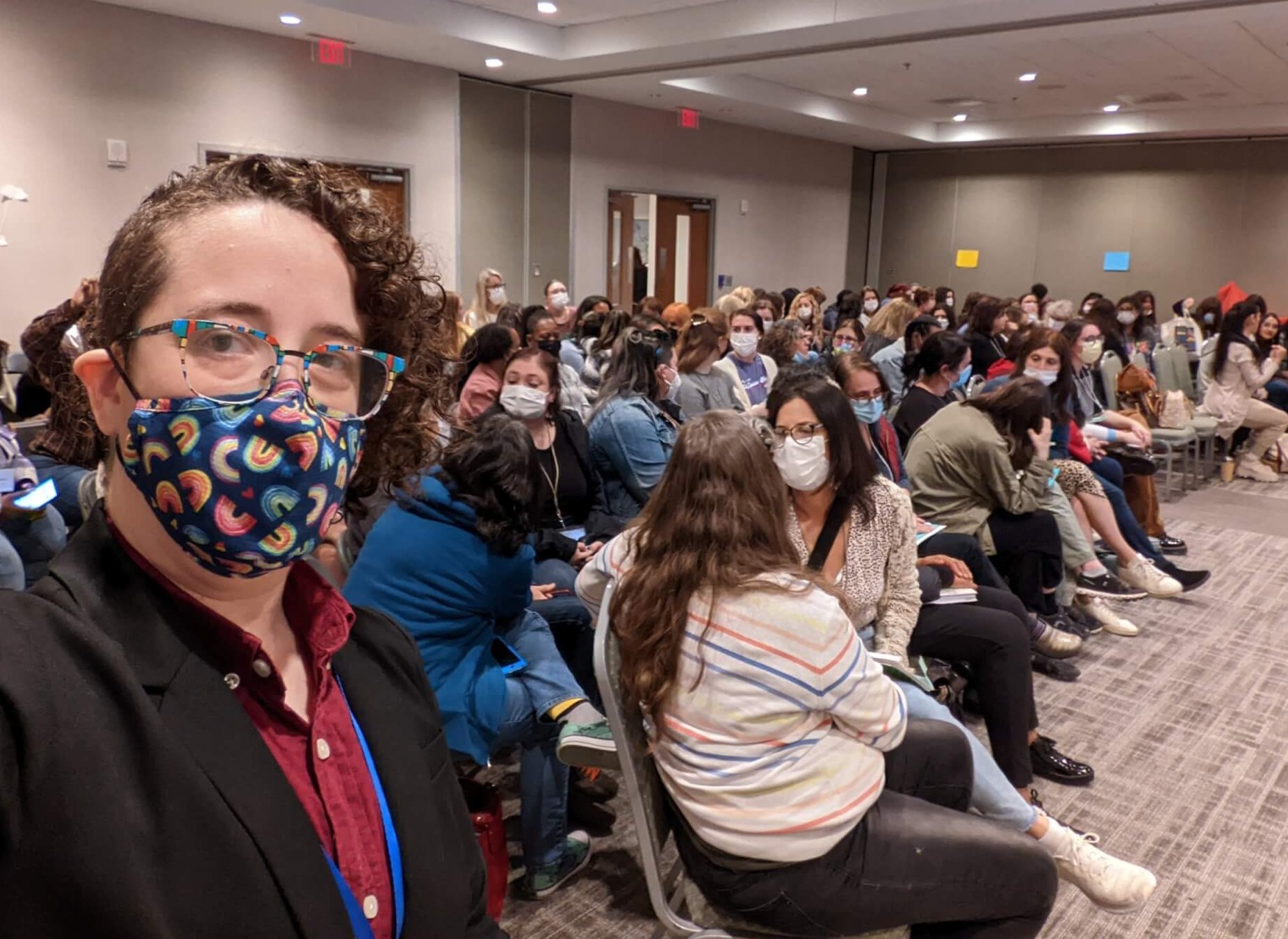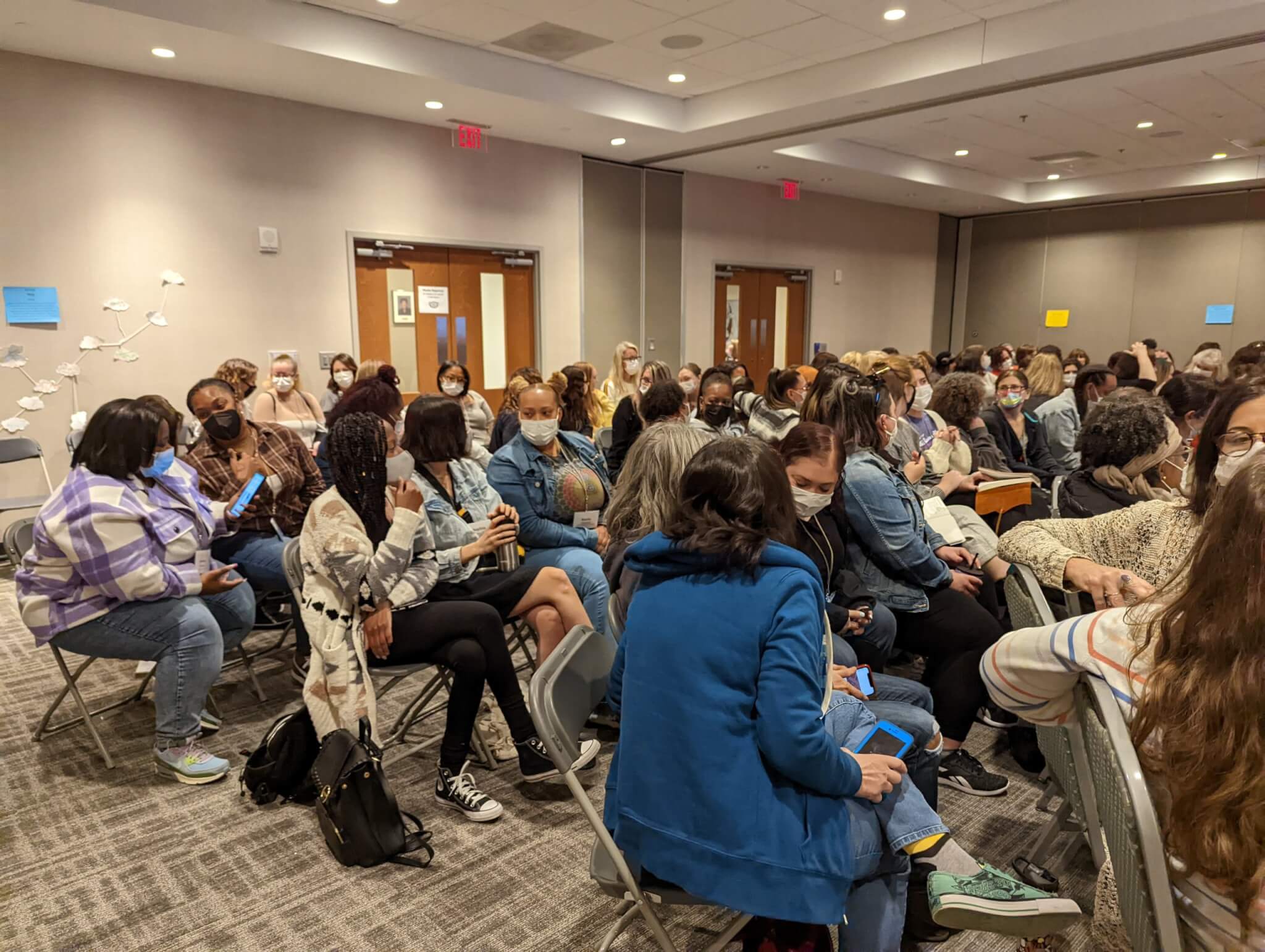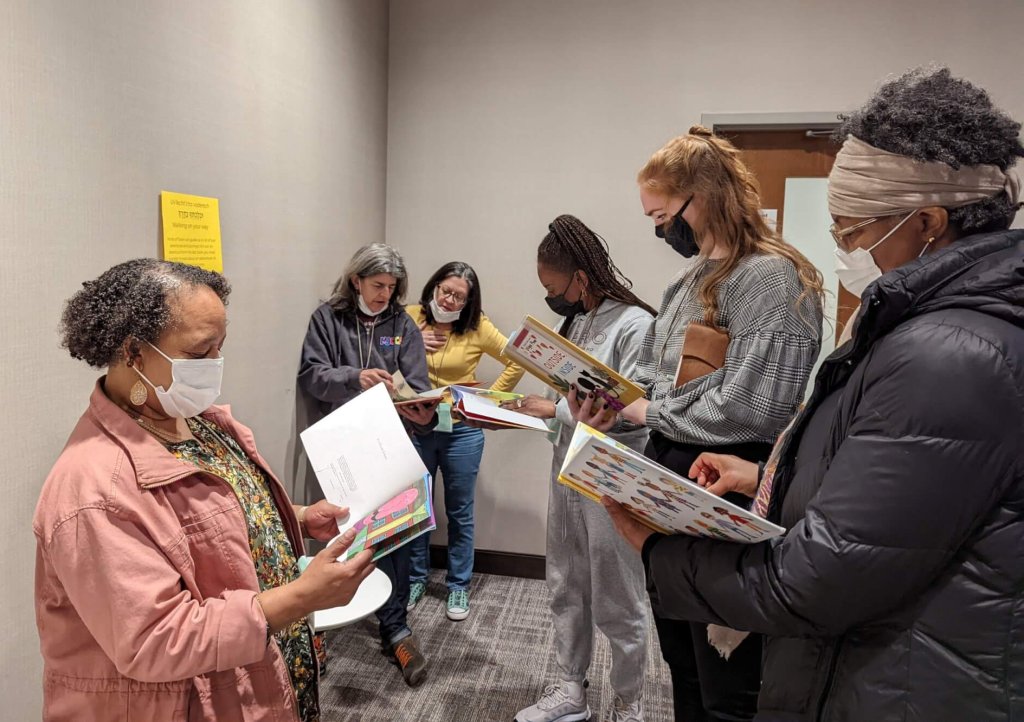
I have the privilege of working with Makom Community’s classroom educators, Makom lab school students, and Jewish educators from all over the country. As Makom Community grows, I get to share my love of Jewish wisdom and Jewish Placemaking not only with children and teachers in our Lab School, but also bring the tools of Jewish Placemaking to educators all over the country.
Rabbi Hanina famously says in Taanit 7a, “I have learned much from my teachers and even more from my friends, but from my students I have learned more than from all of them.” Lucky for me, more and more of my students ARE teachers! I have both gotten to share the Torah we are uncovering in our lab school at Makom Community, and I am lucky enough to learn the Torah other Jewish educators are uncovering in their spaces too. I continue to be amazed by the impact of Makom’s Jewish pedagogy, Jewish Placemaking. It creates shining moments of joy, hope, and nourishes the field of Jewish Education.
I have had the opportunity to teach Jewish Placemaking to a variety of educators this winter and spring: camp professionals, early childhood professionals, and supplementary school teachers, including ones from the religious school and Jewish early childhood program I grew up in! This was during the Jewish Federation of Greater Atlanta’s Education Kallah. That was a really heartwarming moment.

When I worked with early childhood professionals around how Jewish Placemaking promotes empathy in our classrooms and among our learners, I loved seeing all the ways they jumped in to play with with the pedagogy. They built tents, danced out their feelings, built their bedtime routines, took deep breaths with stuffed animals on their bellies, and then they stepped back from their play to share incredible reflections. One educator shared, “I know that my learners mirror my emotions, and my own regulation has to be the first step when my kids are dysregulated. One time I had two kids playing together and helping each other so beautifully that it made me cry. When one of them noticed my tears (I thought I had hidden them well enough, but apparently not!), they fully stopped their play to come check on me. I heard my own words and the empathy I had modeled for them for so many months in how they checked on me. I have never seen such true evidence of learning as what can show up with modeling and play.”
In sharing tools of Jewish Placemaking with camp professionals, we got to dig into the mitzvah of kivud av v’em (Honoring Parents). I challenged this thoughtful group of camp professionals with one of the core values of Jewish Placemaking: all parents are interpreters of Jewish tradition for their own family. And when we say all at Makom, we mean ALL parents– regardless of whether they had a Jewish Education they loved, loathed, or aren’t even Jewish themselves. We passed on tools for how to set parents up to turn to their children and say, “In our family, we see it like this…” When we set up experiences of family learning to hold parents’ lifelong, self-reflective, intentional expertise in their own families, we invite them to be interpreters of Jewish wisdom. At Makom, everyone teaches and everyone learns.

After learning about tools for Jewish Placemaking, educators were eager to brainstorm what Jewish Placemaking could look like at family camp. We developed some incredible and inclusive ideas around how to both build connections among families in family programming and support them in engaging with Jewish wisdom. One group of educators talked about families “signing in” to the retreat by placing a printed family photo on a map where their cabin is and adding their intentions for the family camp weekend. Another group was working on a plan where families could build a bracha (blessing) for their family in an artistic way and bring it home as an active memory of their time at family camp. Another set of educators were working on a plan for families to each create a piece of a collaborative mezuzah. Then each person could take their piece home with them to bring that sense of connection and community to the doorway of their house.
I am looking forward to seeing all the places Jewish Placemaking continues to support in coming weeks and months! I’m excited to share more with you after our July 2023 conference entitled “Jewish Placemaking: Planning for Joy.”
